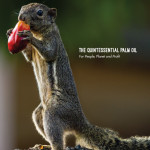Malaysian Palm Oil Council: New Study Outlines Global Economic Benefits of Palm Oil
Palm Oil Imports Add $39bn to Global Economy; Create 2.9 Million Jobs
Kuala Lumpur (26 September 2016) – A new economic study, commissioned by the Malaysian Palm Oil Council (MPOC) and conducted by respected consulting firm Europe Economics highlights the enormous benefits of palm oil for the world economy.
The new study uses economic modelling to analyse palm oil’s role as the world’s most popular, land-efficient and cost-effective oil, and measure the positive impacts for importing countries.
Europe Economics found that:
- Palm oil imports add $39bn of GDP growth to the global economy
- Palm oil imports are associated with the creation of 2.9 million jobs globally
- Palm oil imports contributed the following to the USA, EU 28, India and China:
- USA: $8.76BN in GDP; $860M in tax revenues and 62,000 jobs
- EU 28: €6.42BN in GDP; €1.2BN in tax revenues and 93,620 jobs
- India: Rs221BN in GDP; Rs23.84BN in tax revenues and 1,134,000 jobs
- China: ¥59.31BN in GDP; ¥6.16BM in tax revenues and 929,000 jobs
An infographic illustration of the report’s findings is available online: http://www.palmoileconomics.org
The CEO of MPOC, Dr. Yusof Basiron issued the following statement:
“This is a groundbreaking new study, illustrating palm oil’s role as a provider of economic and social benefits to the global economy. Palm oil production brings substantial benefits to the people of Malaysia; it is clear from this new research that palm oil also brings substantial benefits to businesses and consumers in importing countries.
‘‘The success of palm oil as both an essential food source, and as a renewable energy, demonstrates the value that palm oil provides for producers, manufacturers and consumers around the world.
“The evidence is clear: palm oil must be recognized and welcomed as a major contributor to jobs and growth, generating billions of dollars of benefits, and creating millions of jobs”.
World exports of palm oil almost quadrupled between 1997 and 2013, leading to major increases in value along the supply chain. Europe Economics found that the biggest positive contributions from palm oil imports are to be found in the manufacturing, distribution and services sectors.
Key Facts about Malaysian Palm Oil
Malaysia is the second-largest producer of palm oil, and a major exporter. The Malaysian Palm Oil Council (MPOC) represents the interests of palm oil growers and small farmers, in Malaysia.
40% of all oil palm plantations in Malaysia are owned or farmed by small farmers, who have benefited from oil palm cultivation. Palm oil has been a major factor in Malaysia reducing poverty from 50% in the 1960s, down to less than 5% today. The palm oil industry directly employs more than 570,000 people, with another 290,000 people employed downstream.
Environment
The allegation that Malaysia is deforesting and destroying biodiversity is inaccurate. The Malaysian Government has committed to protecting at least 50% of land area as forest – a bold and far-sighted environmental commitment that no other country has matched.
This commitment by Malaysia has been recognized by the United Nations and the World Bank. Malaysia is a recognized world-leader in forest protection.
Malaysia is committed to a balanced policy that allows for both land development for agriculture (including palm oil) and forest protection. Palm oil covers just 0.3% of the world’s agricultural land, and has the highest yield of any oilseed crop.
Health & Nutrition
Palm oil is a balanced oil, with 50% saturated and 50% unsaturated fatty acids. This balance provides excellent qualities for baking and food production. Palm oil is free of GMOs, and has been used as a replacement for dangerous trans fats, in Europe.
Multiple researchers and experts across Europe and worldwide confirm the many benefits of palm oil, and that the level of consumption in Europe is perfectly normal. Institutions confirming these facts on palm oil and health include studies from the University of Cambridge; the Journal of American Clinical Nutrition; the French Food & Health Foundation; and the Mario Negri Institute in Milan.










Leave a Reply